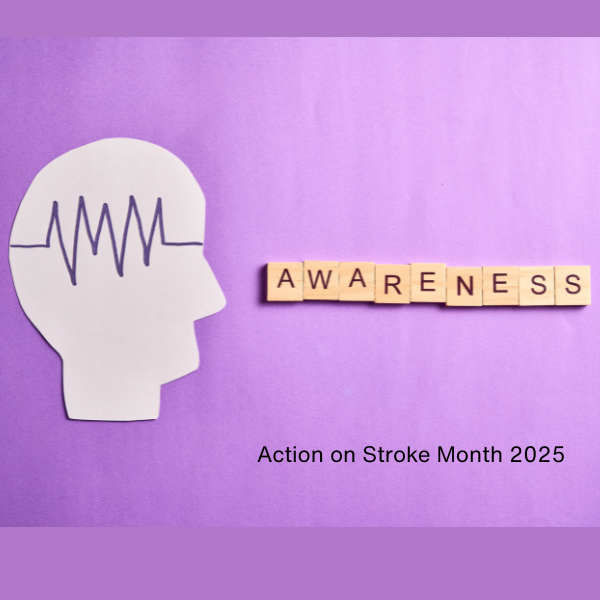Testicular Torsion – A Shift in Medical Opi...
Breast Cancer Negligence & Misdiagnosis Claims Solicitors.
If you have been impacted by clinical negligence during your cancer diagnosis and treatment, and your condition has worsened due to misdiagnosis and delayed intervention, you may be entitled to make a claim for cancer misdiagnosis compensation.
Here at Lanyon Bowdler, we have a wealth of experience handling cases just like yours, and our team have the knowledge and expertise to guide you through the legal process and help you and your family.
Breast cancer is the most common form of cancer in women in the UK, with around 50,000 new cases diagnosed each year. It also affects men, who account for around 1% of diagnoses. In many cases, early intervention lends itself to a positive prognosis, with a 99% five-year survival rate in localised breast cancer.
Failure to adequately screen and diagnose breast cancer can allow it to progress uninhibited, spreading into the surrounding tissue or to other parts of the body. If a late diagnosis or misdiagnosis of breast cancer has caused damage to you, or has led to a fatal prognosis of a loved one, do not hesitate to contact our medical negligence solicitors here at Lanyon Bowdler.
Can I claim for Breast Cancer Negligence?
If you can prove that a medical professional or practice has caused your breast cancer to worsen by acting negligently, you are likely entitled to compensation.
Medical staff owe patients a duty of care, and breaching this leaves them liable to claims. Examples of negligent behaviour can be:
- Misreading test results
- Delaying referrals
- Symptoms being ignored or misinterpreted
There are many more circumstances that can indicate a medical professional has exhibited negligent behaviour. The general rule to prove this is called the Bolam Test, which seeks to establish a standard of quality of care by showing what another reasonable professional in the field would have done in the same situation. If the professional in charge of your care fails this test, they are considered to have acted negligently, and you are likely entitled to make a claim.
If you believe your breast cancer has worsened because of the negligent behaviour of a medical professional or practice, contact Lanyon Bowdler today and find out how we can help you make a claim for Breast Cancer Negligence Compensation.
Your Breast Cancer Compensation questions answered
Some of the symptoms of breast cancer can also be symptoms of less serious conditions, so it is sometimes possible for doctors to misdiagnose cancer, thus causing a delay in treatment and potentially leading to a worsening of the condition.
Breast cancer may be mistakenly diagnosed as:
- Benign breast tumour
- Granular cell tumour
- Abscess
- Mastitis
- Hormonal changes
- Phyllodes tumour
- Duct ectasia
- Fat necrosis
If your breast cancer was misdiagnosed and your treatment was therefore delayed, please get in touch with our specialist team of medical negligence lawyers and we can advise you on whether or not you have a potential claim for compensation.
One of the most commonly recognised signs of breast cancer is the presence of a lump in the breast or armpit which doesn’t go away. A mammogram can actually detect a lump in the breast before you are able to feel or see it yourself, which is why regular breast screening is so important.
Some of the other symptoms to look out for include:
- Swelling around the collarbone or armpit
- Pain in the breast tissue or nipple
- Skin irritation and dimpling of the breast
- Nipple inversion
- Discharge and/or bleeding from the nipple
- Lumping or thickness in the armpit or breast
- A rash on or around the nipple
- Pain, tenderness, and discomfort in the breasts
- Any changes in the size or shape of the breasts
These symptoms may not always point to cancer, and in some cases they could be signs of a benign condition such as an abscess or a hormonal change. However, it is always worth consulting your GP if you are concerned about any changes to your breasts or nipples.
Women over the age of 50, or those with a family history of breast cancer, will be offered regular screening in the form of mammograms every three years up to age 71, in order to detect the condition as early as possible. Late diagnosis of breast cancer can prove fatal in some cases if the cancer has progressed beyond being treatable.
Receiving a diagnosis of breast cancer at any stage is likely to cause great concern for you and your family. However, this concern can be made worse if it transpires that there have been missed opportunities for earlier diagnosis and treatment.
There are a number of ways in which doctors diagnose breast cancer, and in most cases more than one method will be used in order to obtain the most accurate diagnosis. The diagnostic methods for breast cancer typically employed by doctors include:
- Mammograms – A mammogram is an x-ray of the breasts and is often used to screen women who are at high risk of developing breast cancer, such as those over 50 and those with a family history of the condition. If any abnormalities are discovered during a screening mammogram, the doctor may then request a diagnostic mammogram which provides a more detailed x-ray of the breast.
- Magnetic Resonance Imaging – An MRI scan can produce detailed images of the inside of the breast using strong magnetic fields, allowing doctors to get a clearer picture of what is going on.
- Ultrasound Scans – Also known as a sonogram, this type of scan uses high-frequency sound waves to produce an image of the inside of the breasts. It is often recommended for women under 35 years of age as younger women typically have dense breasts and a mammogram may not be suitable.
- Biopsy – This procedure involves collecting a sample of fluid or tissue from the breast to test for cancerous cells. It is more invasive than a scan, but a highly effective diagnostic method. There are several types of biopsy, including fine-needle aspiration, open biopsy, core biopsy, and vacuum-assisted biopsy.
It is vital that the right diagnostic tests are carried out, but it is equally important that the readings and results are interpreted accurately. Failure to carry out the right tests or read the results properly can cause significant delays in diagnosis and treatment, potentially causing the cancer to spread and advance.
If you have experienced misdiagnosis or delayed treatment of your breast cancer due to medical negligence you could be entitled to claim compensation. Our experienced medical negligence solicitors are able to offer advice and guidance so please do not hesitate to get in touch.
If breast cancer is not detected early enough, the available treatment options can become limited and may involve more invasive procedures such as surgery to remove one or both breasts, as well as higher doses of chemotherapy.
There are a number of different methods used in the treatment of breast cancer, and the treatment you receive will usually depend on the stage and grade of breast cancer, your general health, and whether or not you have experienced menopause. The treatment options available include:
- Surgery – This will either be a mastectomy, whereby the whole breast is removed, or breast-conserving surgery, whereby just the cancerous lump is removed known as a lumpectomy. A mastectomy is often followed by reconstructive surgery where the surgeon will try to recreate a breast.
- Chemotherapy – This type of treatment usually follows surgery and involves the use of anti-cancer medicine to destroy any cancer cells that are still present after the breast or lump removal.
- Radiotherapy – A controlled dose of radiation is used to kill cancer cells and is usually administered after surgery and chemotherapy to destroy any remaining cancer cells.
- Hormone therapy – Some breast cancers are stimulated by the hormones progesterone or oestrogen which occur naturally in the body. Hormone therapy works to lower the levels of these hormones to slow or stop the cancer.
- Targeted therapies – These are medicines that target specific cells and change the way they work in order to prevent the cancer from growing and spreading.
Deciding on the best course of breast cancer treatment is not an easy task, and typically requires a multi-discipline team of doctors. If you feel that your doctors did not choose the best course of treatment for you and you have been caused undue pain or distress as a result, you may be able to claim clinical negligence compensation. Our specialist team of solicitors are here to help guide you through the process and put your mind at ease.
When a patient presents with symptoms of breast cancer, it is the doctor’s responsibility to recognise those symptoms and arrange the correct tests in order to obtain an accurate diagnosis, and to then refer the patient for treatment as soon as possible.
There are a number of factors that can lead to a doctor making a breast cancer misdiagnosis, including:
- Dismissing a patient’s symptoms as trivial
- Diagnosing the symptoms as a different condition
- Failing to refer patients for further testing
- Failing to accurately read and interpret test results
- Failing to follow up on test results
- Failing to or delaying in referring the patient to an oncologist
- Inaccurately diagnosing a malignant tumour as benign
- Incorrectly analysing the stage or location of the cancer
- Informing a patient they have cancer when they don’t
- Recommending the wrong course of treatment
- Delaying the start of treatment
This list is by no means exhaustive, and if you have received any kind of negligent treatment from a medical professional during your breast cancer diagnosis and/or treatment, you may be entitled to make a claim for breast cancer negligence compensation. Our specialist team of medical negligence solicitors we’ll do everything we can to help you and your family.
In cases where breast cancer is misdiagnosed as a different condition, it can often have a detrimental impact on the individual’s health and can even prove fatal in some cases. When the diagnosis is delayed, the cancer will continue to grow, and can become much more advanced, meaning that treatment may be more invasive than it would have been if the cancer was detected promptly. In some cases where the diagnosis is significantly delayed, curative treatment will not be possible.
There are four stages of breast cancer, and the survival rate diminishes with each stage:
- Stage 1 – The tumour is less than 2cm in size and the lymph nodes in the armpit remain unaffected.
- Stage 2 – The tumour is between 2cm and 5cm in size, and the lymph nodes are now affected.
- Stage 3 – The tumour has now become attached to the breast structure such as the skin and muscle.
- Stage 4 – The cancer has spread to at least one other part of the body and chances of survival are minimal.
The longer the diagnosis and subsequent treatment is delayed, the more likely the cancer is going to grow and develop, leading to a poorer prognosis for the patient. An early diagnosis may mean the tumour can be easily removed with a very good survival rate, whilst a delay in diagnosis may lead to the whole breast needing to be removed, followed by an intense course of chemotherapy and / or radiotherapy. If the breast cancer diagnosis is delayed long enough for the cancer to develop to stage 4, the patient may not survive, or may be left with lifelong problems relating to their treatment, such as lymphoedema.
If you or a loved one have experienced a delay in diagnosis and treatment of breast cancer, which has led to a worsening of the condition, or has proved fatal, please get in touch with us here at Lanyon Bowdler to find out how we can help you to seek justice.
What our clients say.
Contact us
Please get in touch with one of our specialist medical negligence lawyers if you consider that you may have a Breast Cancer Negligence Claim.
At Lanyon Bowdler, we take pride in being a friendly and approachable law firm, so please get in touch if you or a loved one have been affected by a late or missed diagnosis, or incorrect treatment. Our team will be happy to talk you through the process of filing a compensation claim. There is no obligation to you for any charges for our initial assessment.
By choosing Lanyon Bowdler for any form of Medical Negligence Claim, you can rest assured that you have the best legal expertise on your team. Lanyon Bowdler’s Medical Negligence team is widely acclaimed and recognised as one of the best clinical negligence departments in the country. We are committed to providing exceptional levels of client care and will work closely and considerately with you to help find the best outcomes and help to get your life back on track.
We have offices in Shrewsbury, Bromyard, Conwy, Hereford, Ludlow, Oswestry, and Telford, so are able to act for clients all over Shropshire, Herefordshire, Mid and North Wales and across the Midlands (including Wolverhampton & Birmingham). As a leading full-service law firm, we can represent you wherever you live in England or Wales.
Meet the team.
Case studies.
Latest knowledge.
Our awards and accolades.
Get in touch.
"*" indicates required fields

 Back
Back






























 Blog
Blog




 Case Study
Case Study

 Podcast
Podcast












